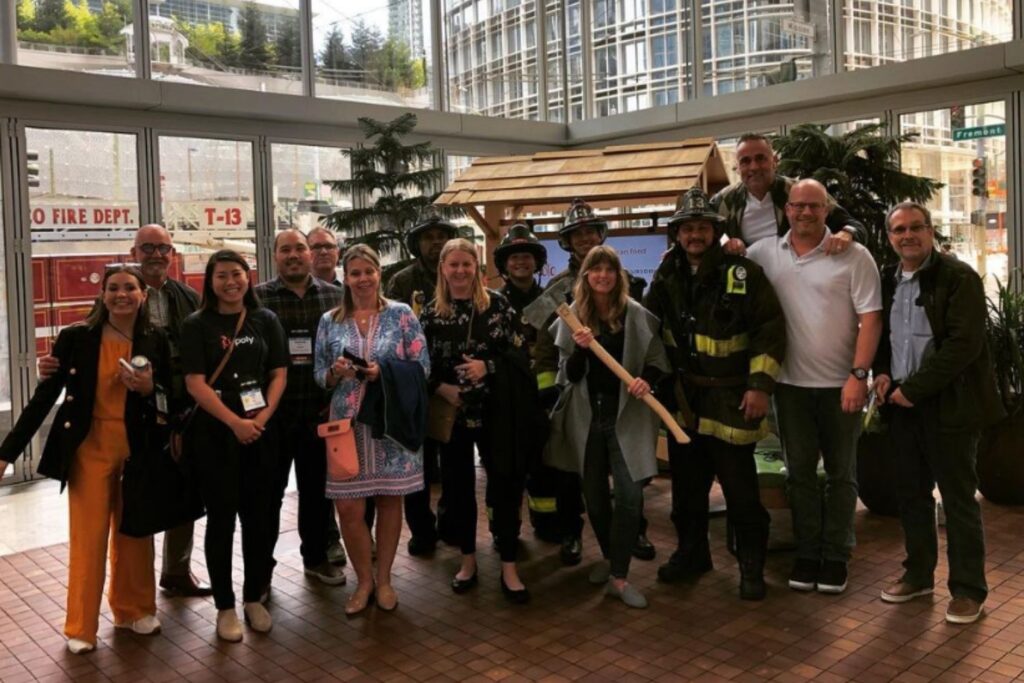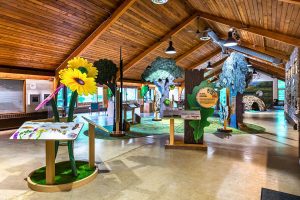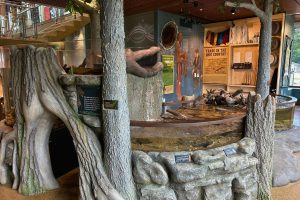- Jeff Hannah
Storytelling forms the backbone of what we do in the experiential world. People love stories – and I enjoy telling them! Stories are memorable – they stick with you – and are highly likely to be passed along to someone else. I happen to have a new story for you here today – one that I believe you will not only enjoy but hopefully provide inspiration.
Stories seem just to be part of our human nature. They are very powerful – and can connect us together and create a type of bond between people. They also serve as a fantastic memory mechanism. People generally remember the gist of a story, even if they forget everything else. Whenever I’m giving a talk somewhere, I start with one of my many “stories from the road,” curated from over 25 years of working around the world. People will sometimes pay attention to your talking points and data, but as soon as you start telling a story, they noticeably perk up and listen more intently. Stories tend to be good icebreakers and get people focused and engaged. And people remember them!
In a keynote session at a recent conference I attended, they used the phrase “shock after shock,” referring to the impact of the pandemic, the war in Ukraine, social unrest, and other geopolitical things happening in the world now. While many of us are still waiting for a return to normal, the speaker predicts that there are even more shocks to come. They – and others like them – recognize that what we knew before (to a degree) is gone and is not coming back – at least not in the same way. Their main point was that those individuals and companies who are most adaptable to the changes will survive and thrive.
They emphasized the importance of recognizing that when these “shocking moments” in life occur, they also generate new opportunities – if we are willing and able to see them. It’s normal to become preoccupied with the shock of the situation and miss the opportunities that may be sitting right in front of us. But we must consciously look past the shock in order to see those opportunities.
I had no idea that shortly after that talk, I would be experiencing my very own shock when I got trapped in an elevator in a skyscraper in downtown San Francisco, along with twelve other people! It was tight; it was crowded; it was scary. While we didn’t know if this was a momentary thing – or something more, it became something more!
Many of us immediately shifted into “survival mode” – becoming uber observant of how warm, stuffy, and uncomfortable it was getting. Some were trying to call for help – on the emergency phone, and on cell phones – most of which got little or no signal at all. Others shifted to figuring out how to escape – trying to force the doors open and things like that. A couple seemed to view it as a minor inconvenience – no big deal. Some were just still, quiet, and looking down at the floor. I probably did some of all of the above. But I am quite claustrophobic and honestly did have some fleeting moments of panic but I tried not to show it.
Another interesting thing became clear right from the very first moments – people were immediately concerned with the welfare of everyone else around them. We all knew it was a stressful situation – and that some might handle it better than others. So, people started expressing concern and asking one another if they were okay.
A man standing next to me had been in a previous elevator entrapment in the past, who immediately became the “tour guide” of this experience. He calmly started explaining what was happening and what was likely to happen next in the process, which helped set expectations and brought an immediate sense of calm and focus to the group. A knowledgeable tour guide is great to have on any journey!
Distraction became the key to staying calm and passing the time. We told stories, watched some videos that people had on their phones, and cracked some jokes. All of it helped. We bonded; we listened; we talked; we laughed; we helped each other through. We experienced it for what it was – the good and the bad. Before you knew it, it had been thirty minutes, then forty-five and so on.
As part of my distraction, I started thinking about how to capture the experience of what was happening here and how the story might be told from my perspective. So, I took some photos and video with my phone (with only 1% of battery life!). I carefully observed what others were doing and how they were coping, carefully recording the story in my mind.
Not only do stories connect people, but experiences connect people on an even deeper level. Each of my friends from this “elevator entrapment” excursion now has a bond, having a shared experience – a shock (of sorts) together. Now they can reflect, interpret the meaning, and share the story from their unique perspective.

As I reflect, I see this situation as sort of a microcosm of the shock that the business world has experienced during the COVID-19 pandemic for the past couple of years: everything suddenly shut down – and all we wanted was for this to end so that we could continue to our planned destination. In both situations, we never made it to our intended destination. We went on a different excursion altogether.
We were trapped for one and a half hours, until we were finally rescued by the great folks of the San Francisco Fire Department (Station 13) – and the elevator technicians. Thank you!
The ball is in your court! Stories, experiences and opportunities are all around us. It’s up to us to recognize them, to see them, and to interpret them. What do they really mean – and how significant are they? What can or should I do with this?
And finally, the next time you want to get stuck in an elevator with friends, I highly suggest you do it with some people from the experiential world. They really know how to turn it into an experience!


Jeff Hannah
Jeff Hannah is VP of Strategy for Exhibit Concepts. He podcasts, consults, writes, and speaks about engagement strategies, and trade show differences between countries. Having founded companies in the UK, UAE and the USA, he has produced experiential environments in over 50 countries for many of the world’s top brands. He hosts The Global Exhibitor Podcast, and blogs at GlobalExhibitor.com. Hannah holds a BS in Industrial Design from Georgia Institute of Technology.










